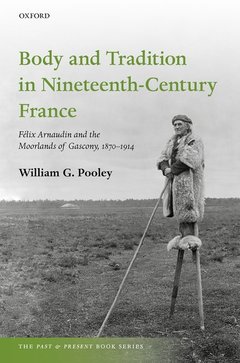Body and Tradition in Nineteenth-Century France Félix Arnaudin and the Moorlands of Gascony, 1870-1914 The Past and Present Book Series
Langue : Anglais
Auteur : Pooley William G.

The moorlands of Gascony are often considered one of the most dramatic examples of top-down rural modernization in nineteenth-century Europe. From an area of open moors, they were transformed in one generation into the largest man-made forest in Europe. Body and Tradition in Nineteenth-Century France explores how these changes were experienced and negotiated by the people who lived there, drawing on the immense ethnographic archive of Félix Arnaudin (1844-1921). The study places the songs, stories, and everyday speech that Arnaudin collected, as well as the photographs he took, in the everyday lives of agricultural workers and artisans. It argues that the changes are were understood as a gradual revolution in bodily experiences, as men and women forged new working habits, new sexual relations, and new ways of conceiving of their own bodies. Rather than merely presenting a story of top-down reform, this is an account of the flexibility and creativity of the cultural traditions of the working population. William G. Pooley tells the story of the folklorist Arnaudin and the men and women whose cultural traditions he recorded, then uncovers the work carried out by Arnaudin to explore everyday speech about the body, stories of werewolves and shapeshifters, tales of animal cunning and exploitation, and songs about love and courtship. The volume focuses on the lives of a handful of the most talented storytellers and singers Arnaudin encountered, showing how their cultural choices reflect wider patterns of behaviour in the region, and across rural Europe.
William G. Pooley is a historian of France in the long nineteenth century, interested in popular and folk cultures. He has published work on family history, supernatural beliefs, and the history of the body, drawing on the ethnographic collections of pioneering folklorists such as Jean-François Bladé and Félix Arnaudin. His current research explores criminal trials involving accusations of witchcraft in France (1790-1940). He has an interest in 'creative histories' and has collaborated with storytellers, playwrights, and poets to explore questions of what creative approaches bring to historical research. His work has been supported by grants and fellowships from the British Academy, the Society for the Study of French History, the Institute for Historical Research, the Past & Present Society, and the Folklore Society.
Date de parution : 12-2019
Ouvrage de 208 p.
16.1x23.2 cm
© 2024 LAVOISIER S.A.S.



